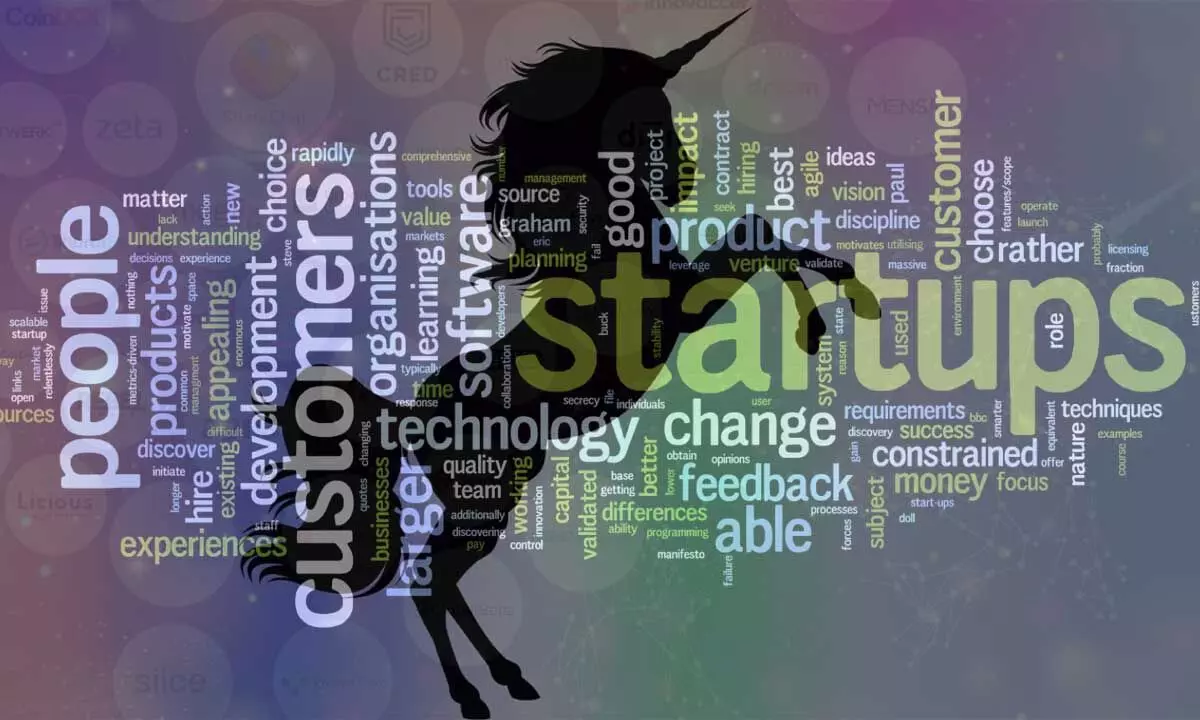India added fewer Unicorns in 2022, what 2023 holds for Indian startups?
There may have been a drop in the number of startups turning into Unicorns and a sharp fall in funding raised by Indian startups in 2022, but the good news, as the year drawn to an end, is that a larger number of startups with female founders-led turned unicorns this year compared to 2021.
image for illustrative purpose

There may have been a drop in the number of startups turning into Unicorns and a sharp fall in funding raised by Indian startups in 2022, but the good news, as the year drawn to an end, is that a larger number of startups with female founders-led turned unicorns this year compared to 2021. Seven startups founded by eight female founders turned unicorns in 2022 as against six such startups in 2021. 5Fire, LivSpace, Lead, Hasura, Amagi, Open, and Oxyzo were the seven startups with female founders to enter the unicorn club in 2022.
This positivity notwithstanding, the overall scenario in this regard is nothing to write home about. The Indian startup ecosystem raised only $24 billion in 2022 till November as against $42 billion raised in the entire 2021. As a result, the number of startups which turned unicorns fell 50 per cent year-on-year to 21 in 2022. In another study (this one by Moneycontrol), compared to 44 in 2021, only 23 new unicorns were minted in India this year. Looking at globally, compared to last year's total of 542, only 244 new unicorns have been created globally so far in 2022, according to data compiled by private market intelligence platform Tracxn Technologies.
The cold investment wave in global financial markets, brought on by persistently high inflation, which compelled central banks around the world to raise interest rates, can hardly be ignored or overlooked. The cold wave has lasted more than nine months and experts expect is to worsen in 2023. This obviously means that there will be even fewer unicorns emerging next year (in 2023).
It is pertinent to mention here that the Indian startup ecosystem's first three months of 2022 weren't all that bad. Like last year, India got a new unicorn almost every week. Up until March, India minted as many as 14 new unicorns. However, for the first time in nearly 19 months, or since August 2020, India did not see a new unicorn minted. Since then, the country has only seen nine new unicorns minted in the nine months to December, compared to 39 in the same period in 2021.
Ironically, although the agritech sector attracted significant investor interest throughout the year, India is yet to produce an agritech unicorn. SaaS (software-as-a-service) was the hottest sector in 2022. Six new SaaS startups serving various industries became unicorns this year, compared to four in 2021 and one in 2020. India currently has 16 SaaS Unicorns. More particularly, the enterprisetech sector produced the highest number of unicorns in 2022. Six startups from the sector turned Unicorns during the year, which was 29 per cent of the total startups entering the unicorn club in 2022.
Overall, capital flow to the startup ecosystem has slowed. From April to December 2022, VC and PE (private equity) funding to India's startup ecosystem fell nearly 50 per cent year on year to $29.2 billion. Between April and December 2021, PE/VC investors invested approximately $58.9 billion in the country's startup ecosystem, making it the world's third-largest. When it comes to late stage investments, compared to $43 billion in 2021, late-stage investments to India's startup ecosystem fell to just under $25 billion in 2022.
With the funding winter expected to worsen in the months to come, it will be interesting to see how many new unicorns are minted in India and around the world next year, as investors have revised their parameters to gauge the companies' valuations. The pace of startups entering the unicorn club is expected to increase only in the second half of 2023 and not before that.

